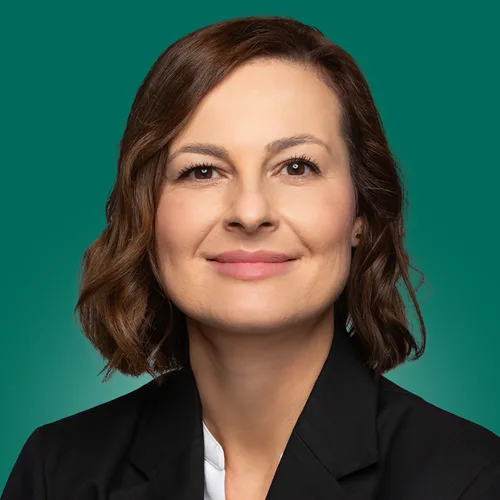
Background knowledge
Utilization
Companies
in Germany.
Utilization
Companies
in Germany.
Collecting societies in Germany: guardians of intellectual property
Collecting societies are a central element of the German copyright system. They act as intermediaries between creators and the users of their works. This ensures that authors are appropriately remunerated for the use of their intellectual creations. But what exactly are collecting societies, which ones exist in Germany and how does the system work?
What are collecting societies?
Collecting societies are associations of authors, publishers and holders of ancillary copyrights organized under private law. They administer the laws of their members on a fiduciary basis and collectively enforce copyright claims.
Private copying remuneration: a tried and tested system
There is a system of private copying remuneration in Germany. This system dates back to the 1960s, when the mass reproduction of music using magnetic tapes became possible.
The basic idea is simple: according to copyright law, so-called private copies are permitted, but must be remunerated. This is done, for example, via device levies. This remuneration is collected by the Central Office for Private Copying Rights (ZPÜ) and distributed to the collecting societies.
How does the system work?
Collecting societies collect money on behalf of their members – the rightholders – and redistribute it. They are granted copyrights by their rightholders, which each and every creative person would otherwise have to claim individually.
The collecting societies act as trustees. This means that they manage the laws of their members and ensure that the claims are enforced.
The money collected is paid to the members of the collecting societies according to predetermined keys after deduction of the administrative costs. These distribution keys are developed by the collecting societies themselves and must be communicated transparently.
Basic tasks of collecting societies
The main tasks of collecting societies include
- Rights management: They collect license fees and remuneration on behalf of their members – the rightholders – and redistribute them.
- Fiduciary management: They manage the copyrights and ancillary copyrights assigned to them on a fiduciary basis.
- Collective law enforcement: Individual authors would otherwise have to take action against every user of their works themselves – a practically impossible undertaking.
- Tariff setting: You negotiate appropriate remuneration rates with users for different types of use.
The 14 German collecting societies at a glance
There are currently 14 licensed collecting societies in Germany that cover various areas of intellectual property:
Music and recordings
GEMA (Society for Musical Performing and Mechanical Reproduction Rights)
- The largest and best-known German collecting society
- Represents composers, lyricists and music publishers
- Founded in 1947, predecessor organization since 1903
GVL (Gesellschaft zur Verwertung von Leistungsschutzrechten mbH)
- Represents performing artists and producers of sound recordings
- Responsible for ancillary copyrights for music performances
VG Musikedition (collecting society for music editions)
- Specialized in mechanical reproduction rights for sheet music
Text and literature
VG WORT (collecting society WORT)
- Represents authors and publishers of language works
- Responsible for texts in books, magazines, online media
Fine arts and photography
VG Bild-Kunst (Collecting society for image art)
- Represents visual artists, photographers, illustrators
- Covers all visual art forms
Film and television
GÜFA (Gesellschaft zur Übernahme und Wahrnehmung von Filmaufführungsrechten mbH)
- Specialized in film performance rights
VFF (Collecting society of filmmakers)
- Represents directors, cinematographers, editors and other filmmakers
VGF (Collecting society for exploitation rights to film works mbH)
- Responsible for rights of use for film works
GWFF (Gesellschaft zur Wahrnehmung von Film- und Fernsehrechten mbH)
- Represents film producers
AGICOA (Society for the Administration of Audiovisual Laws mbH)
- International collecting society for audiovisual works
Media and broadcasting
CORINT MEDIA (Company for media licenses mbH)
- Represents press and broadcasting publishers
- Responsible for ancillary copyrights of press publishers
TWF (Treuhandgesellschaft Werbefilm mbH)
- Specialized in advertising films and commercials
Other areas
GWVR (Gesellschaft zur Wahrnehmung von Veranstalterrechten mbH)
- Last approved in 2014
- Represents the laws of event organizers
VHG (Collecting society for the producers of games mbH)
- The newest collecting society (approved in 2025)
- Represents the games industry
The legal framework
The Collecting Societies Act (VGG)
The Collecting Societies Act has governed the work of collecting societies in Germany since 2016. It implements EU directives and modernizes the German system.
Important provisions of the VGG:
- Obligation to obtain permission from the DPMA
- Transparency regulations (annual transparency reports)
- Distribution rules for collected funds
- Laws and obligations of the collecting societies
- Control mechanisms
State supervision by the DPMA
The German Patent and Trade Mark Office (DPMA) exercises state supervision over all collecting societies. This supervision is necessary because collecting societies require special control due to their monopoly and fiduciary status.
Tasks of the DPMA Supervisory Authority:
- Granting of the business license
- Monitoring compliance with legal regulations
- Audit of the transparency reports
- Control of the distribution plans
European dimension
Uniform standards for collecting societies have also applied across Europe since 2016. EU Directive 2014/26/EU (Collective Management of Rights) harmonizes the regulations in the member states.
Challenges and the future
Digital transformation
Increasing digitalization poses new challenges for collecting societies. Streaming services, online platforms and new forms of use require constant adjustments to licensing systems.
International networking
As creative content is now distributed globally, collecting societies must increasingly cooperate internationally. Reciprocity agreements between the collecting societies of different countries ensure cross-border rights management.
New technologies
Artificial intelligence, blockchain technology and automatic content recognition are changing the way in which laws can be identified and billed.
Criticism and controversy
Collecting societies are also criticized. Frequent points of criticism are:
- High administrative costs
- Non-transparent distribution key
- Monopoly position in certain areas
- Complex tariff systems
The VGG of 2016 addressed many of these points of criticism and attempted to mitigate them through increased transparency regulations and control mechanisms.
Summarized
Collecting societies are an indispensable part of the German copyright system. They enable creative people to collectively enforce their laws and receive appropriate remuneration. With 14 specialized collecting societies, Germany covers all important areas of intellectual property – from music, literature and film to the latest developments in the games industry.
State supervision by the DPMA and the modern VGG ensure transparency and legal certainty. Even if the system is not free of criticism, it remains a proven model for the fair remuneration of creative work in the digital society.
Questions about collecting societies?
We are happy to
advise you about
Copyright!
Our team
in copyright law
Our team
in copyright law




